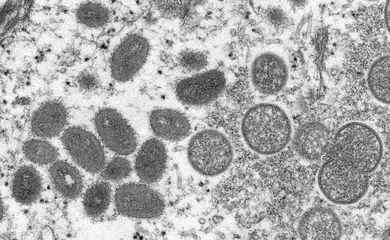Health Minister: Brazil prepared to keep monkeypox under control

Health Minister Marcelo Queiroga said Brazil was prepared to deal with the monkeypox outbreak since the beginning of the epidemic. During the opening of a workshop on health surveillance, promoted by the ministry on Monday (Jul. 25), Queiroga said the country has provided laboratories for diagnosis and identification of cases, and the isolation of patients.

“From the beginning, we started to make the diagnosis. We have alerted state and municipal health departments. The identified cases are isolated,” the minister added.
Queiroga praised the decision of WHO Director-General Tedros Adhanon Ghebreyesus who declared monkeypox an international public health emergency. The minister mentioned there is a greater occurrence of the virus in male homosexuals, and said he did not want to stigmatize anyone. “It cannot be denied that this is a reality, but other people can also have this disease. Anyway, we will learn together how to deal with this health problem,” the minister declared.
Illness
Brazil has 696 confirmed cases of monkeypox so far. The disease is caused by a virus and it is transmitted by close contact with an infected person with skin lesions through hugging, kissing, sexual intercourse, or respiratory secretions. Transmissions also occur by contact with objects, fabrics (clothes, bed sheets, or towels), and surfaces that were used by infected patients.
There is no specific treatment, but in general, the clinical states are mild and require care and observation of the lesions. The greatest risk of worsening occurs, in general, for immunosuppressed patients with HIV/AIDS, leukemia, lymphoma, metastasis, transplanted patients, people with autoimmune diseases, pregnant and lactating women, and children under 8 years of age.



